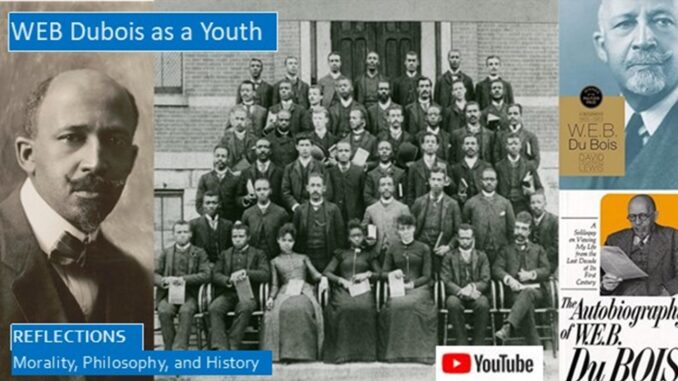
WEB Dubois belonged to the third generation of black leaders. Frederick Douglass belonged to the first generation of black leaders, he was born around 1817 and escaped from slavery in the 1830’s. He was an abolitionist, orator and best-selling author, and was an advisor to Abraham Lincoln during the Civil War.
Booker T Washington was a second-generation black leader, also born into slavery, who was a teacher and founder of the black industrial college, Tuskegee Institute. Washington raised vast sums from northern white businessmen and philanthropists to fund black schools during the dark days of Jim Crow racism, he was an accommodationist who encouraged blacks to be subservient, work hard, and save their pennies so that someday their lives will improve.
WEB Du Bois was a third-generation black leader and activist, born after the Civil War, who demanded dignity, civil rights, and real economic opportunity for blacks. He often publicly clashed with Booker T Washington and the Tuskegee Machine, which we will discuss in our next video on WEB Du Bois’ autobiography.
This YouTube video: https://youtu.be/N2ZqixUxPmo
Script with more Amazon book links: https://www.slideshare.net/BruceStrom1/web-dubois-in-his-youth-college-years-and-early-career-autobiography-and-biography
UNDERSTANDING WEB DU BOIS
To understand WEB Du Bois, you must first know that he was truly an intellectual, you could almost say that he was incapable of pouring out his feelings; rather, he can instead deliver a thirty-minute soliloquy of his feelings, displaying little emotion. Indeed, this is how WEB Dubois describes his autobiography: “This book is the Soliloquy of an old man on what he dreams his life has been as he sees it slowly drifting away; and what he would like others to believe.”[1]
Like all blacks, WEB Du Bois was conscious of his race. In his book, Souls of Black Folk, he coined the term double-consciousness, a term that has been used by American sociologists ever since. WEB Du Bois explains, “It is a peculiar sensation, this double consciousness of blacks, this sense of always looking at one’s self through the eyes of others, of measuring one’s soul by the tape of a world that looks on in amused contempt and pity. One ever feels his two-ness, one American, another a Negro, two souls, two thoughts, two unreconciled strivings; two warring ideals in one dark body, who dogged strength alone keeps it from being torn asunder.”[2]
WEB Du Bois was also a contrarian, he always marched to his own drum, which was why he was such a successful activist. From an early age he felt compelled to fight for the civil rights of his fellow blacks, he always had a sense that he was one of the black elite who would work tirelessly for civil rights, and this sense of destiny made him a contrarian, an idealist always building a better future. Since he often was ahead of everyone, he was often out-of-step with everyone, and at the end of his life he developed this romantic vision of communism.
Most people who write their autobiography begin with an account of their childhood, but WEB Du Bois, ever the contrarian, starts his autobiography with a statement that he was a communist, so yea, we have to deal with this in our final video on his life.
WEB Du Bois was ambivalent towards religion, he was not anti-religious, he said that in his youth that his attitude was simply that that “God ruled the world, Christ lived the world, and men did right, or tried to.”[3]
WEB Du Bois tells us that “one thing I avoided, and that was envy. I tried to give the other fellow his due even when I disliked him personally and disagreed with him logically. It was a point of honor to me never to refuse appreciation to one who had earned it, no matter who he was.”[4]
BOYHOOD OF WEB DU BOIS
But after some short chapters describing his tours of Soviet Russia and China, WEB Du Bois tells us that he was born in 1868, the year that the freedmen of the South first gained the right to vote, five years after the Emancipation Proclamation, during the years of Radical Reconstruction.
Born as slaves, Frederick Douglass and Booker T Washington lived in one-room dirt-floor shacks, but WEB Du Bois had a normal childhood, he describes his house as “quaint, with clapboards running up and down, neatly trimmed; there were five rooms, a tiny porch, a rosy front yard, and unbelievably delicious strawberries in the rear.” His mother’s family, the Burghardts, had lived in the South Egremont Plain in Massachusetts for two centuries, they had deep roots and did not accept his father into the family. WEB Du Bois recounts, “the black Burghardts did not like him. He was too good-looking, too white. He had apparently no property and no job, so far as they knew; and they had never heard of the Du Bois family in New York.”
His father moved to Connecticut away for employment, sent for his wife, but she refused to leave home. His father never returned, and WEB Du Bois says he “never saw him, and knew not where or when he died.” His mother sank into a depression that never really lifted, she always worried, she never married, they always lived at the edge of poverty, but their many relations ensured that young WEB Du Bois never went hungry, always had decent clothes and shoes, and after the age of twelve always had his own room.[5]
Academically, WEB Du Bois was a precocious child, always did well in school, he was the “first of his clan to finish high school,”[6] and was one of the top students. He the only black graduate of his high school class, and WEB Du Bois was a favorite of his white teachers. There was no explicit discrimination, the memories of the struggles of the Civil War lingered, many in the North supported civil rights for blacks in abstract terms, though there was no enthusiasm for desegregated housing and opportunity. He had white playmates when he was younger, and was invited into many of their houses, but his white acquaintances became more distant as he grew older. The school’s working-class neighborhood was not overtly prosperous, there was no ostentatiously wealthy families, and the few paupers were looked after by the local charities.”[7]
ATTENDING FISK UNIVERSITY IN DEEP-SOUTH TENNESSEE
His high school class has thirteen graduates, few had the ambition to attend college, but WEB Du Bois had no doubts about his academic future, and several local white teachers and civic leaders assisted with a scholarship for his studies, several encouraged him to go South for his education. WEB Du Bois wanted to attend Harvard, but readily accepted a place at Fisk University in Tennessee.
This highlights a reality all blacks faced after Emancipation. Blacks were so destitute that they needed the assistance of sympathetic whites to really get ahead in life.
WEB Du Bois saw this as a detour, he said that “of course I would go to Harvard in the end. But Fisk was an adventure. I was going into the South; the South of slavery, rebellion and black folk; above all, I was going to meet colored people of my own age and education, of my own ambitions.”
His family and colored friends resented this idea. They might dictate how his miserably unhappy mother lived her life, but her son was far more independent, far more contrarian. Could his contrary nature be, in part, a rebellion against the miserable life he watched his mother live because she did not push back against her family’s intrusive meddling?
WEB Du Bois told them, “I wanted to go to Fisk, not simply because it was at least a beginning of my dream of college, but also because I was lonesome in New England. Unconsciously, I realized that as I grew older, and especially now that I had finished the public school, the close cordial intermingling with my white fellows would fade. There would be meetings, parties, clubs, to which I would not be invited.” Due to his advanced schooling, he was placed in the sophomore class, and became the editor of the school newspaper.[8]
Fisk University, like Atlanta University, as described by his biographer Lewis, was committed to “producing African-American versions of New England ladies and gentlemen, Black Puritans or Afro-Saxons, as they were sometimes mockingly called.”[9] But Fisk was also located in the Deep South, blacks had to be careful in the city streets, many of his classmates were armed when they went into town.[10]
Much to the consternation of his teachers and classmates, during his summer vacation our contrarian WEB Du Bois insisted on trudging through the countryside looking for a small school where he could instruct the local black children. When he became an academic, he contracted with the Department of Labor and applied for grants for sociological surveys of blacks in America, and in this first project he was curious how blacks were able to improve themselves through education in the rural backwaters of the Deep South. You can read more details of his Deep South school teaching days in his Souls of Black Folk.
After long walks over several days through many towns, he encountered an eager black student, Josie Dowell, who wanted to learn how to read. He met Colonel Wheeler, the civic minded white man who charitably paid his small salary, and was invited to dinner. WEB Dubois assumed everyone would eat at the same table; but no, in the Deep South, if you were a Negro and were invited to dinner, that meant you waited your turn and ate after the white people ate.
WEB Du Bois describes his one-room schoolhouse:
“The schoolhouse was a log hut, where Colonel Wheeler used to shelter his corn. It sat in a lot behind a rail fence where a door once was, and within, a massive rickety fireplace; great chinks between the logs served as windows. Furniture was scarce. A pale blackboard crouched in the corner. My desk was made of three boards, reinforced at critical points, and my chair, borrowed from the landlady, had to be returned each night. Seats for the children, these puzzled me much. I was haunted by a New England version of neat little desks and chairs, but alas! the reality was rough plank benches without backs, and at times without legs. The had the one virtue of making naps dangerous, possibly fatal, for the floor was not to be trusted.”
When WEB Du Bois first started his classes, he had as many as thirty students, but attendance dwindled away. Sometimes he visited the parents to coax them to send their children to school. He remembers that one “father would tell me how the crops needed the boys; and the thin slovenly mother, whose face was pretty when washed, assured me that Lugene must mind the baby. ‘But we’ll start them again next week.’ When the Lawrence children stopped coming, I knew that the doubts of the old folks about book learning had conquered again.”[11]
ONWARD TO HARVARD AND UNIVERSITY OF BERLIN
After spending three years at Fisk, WEB Du Bois was selected for a scholarship to attend Harvard, as they were seeking to expand their student body with bright students with meager means. The colleges taught the classics in that era, he could read and was conversant in Greek, Latin, and German. WEB Du Bois held his own at Harvard, and was a favored student of famous professors, he read Immanuel Kant’s Critique of Pure Reason with Santayana, studied under Josiah Royce, and listened to William James debate the existence of God, and reflect on sensations and consciousness.[12] WEB Du Bois remembers that “William James guided me out of the sterilities of scholastic philosophy to realist pragmatism,” and James encouraged our student to join the Philosophical Club, and often invited him to his house for dinner. WEB Du Bois did not seek out white friends his age at Harvard but found friends among the blacks of Boston.[13]
WEB Du Bois graduated cum-laude from Harvard with a bachelor’s degree in philosophy in 1890, during the Jim Crow era when blacks were robbed of their right to vote and denied due process in the Deep South. WEB Du Bois was one of five students asked to give a speech at commencement, he chose to speak on Jefferson Davis, the former President of the Confederacy, this earned a mention in the New York Nation publication. WEB Du Bois then earned his master’s degree; his thesis was on the enforcement of the slave laws. He was elected to the American Historical Society and was asked to speak at their meeting on this topic, which again was mentioned in the Nation.[14]
WEB Du Bois then decided to continue his studies at the University of Berlin, and not only did he lobby Rutherford B Hayes for a scholarship; he also met with the former president! He spent several years studying at the Humboldt University of Berlin, a world-renowned university.
Many leading blacks liked to tour Europe; they left the world of Jim Crow behind them. WEB Du Bois remembers, “in Germany in 1892, I found myself on the outside of the American world, looking in. With me were white folk, students, acquaintances, teachers, who viewed the scene with me. They did not always pause to regard me as a curiosity, or something sub-human; I was just a man of the somewhat privileged student rank, with whom they were glad to meet and talk over the world; particularly, the part of the world whence I came.” WEB Du Bois even had a white German girlfriend![15]
The University of Berlin would not recognize his work at Harvard, he would have had to spend another year before he could sit for his doctorate, and he did not want to reapply for an extension to his scholarship, so he decided to return home and earn his doctorate at Harvard.[16] WEB Du Bois had fond memories of Germany, he proclaims, “as a student in Germany, I built great castles in Spain and lived therein. I dreamed and loved and wandered and sang; then after two long years I dropped suddenly back into ‘nigger’ hating America!”[17]
PROFESSOR DU BOIS AT WILBERFORCE COLLEGE
WEB Du Bois thought that with a Harvard PhD he would have no problem finding a teaching job at a black college. He wrote to all the black colleges in the country and watched the summer months roll by, finally nabbing a position at Wilberforce University. Then better paying offers from other schools were received, including an offer from Tuskegee Institute, run by his future frenemy Booker T Washington, but he turned them down as he already accepted the Wilberforce position.
WEB Du Bois was hired to teach Latin and Greek at Wilberforce, a small black school affiliate with the African Methodist Church. He soon earned a reputation for his contrariness, when he wandered into a prayer meeting, it was announced that Professor Du Bois will lead us in prayer, to which he answered, “No, he won’t,” which was a shocking retort in a religious college, guaranteed to generate gossip and chatter.
But this contrariness was also a strength, WEB Du Bois gives us a frank self-analysis: “I was cocky and self-satisfied. I doubtless strutted and I certainly knew what I wanted. My redeeming feature was infinite capacity for work and terrible earnestness, with appalling and tactless frankness.”
At Wilberforce WEB Du Bois “met the slender, quiet, and dark-eyed girl Nina Gomer, who became Mrs. Du Bois in 1896.” Like many young men, he also wanted to raise a family, but WEB Du Bois had this odd notion: “If a man and woman are friends, they must be married and their friendship may become a cloying intimacy, often lasting 24 hours a day, with few outside friends of the opposite sex on pain of gossip, scandal and even crime engulfing the family. My travel and work away from home saved us from that.”[18]
Nina Gomer was not an intellectual, she devoted herself to her children and family, and WEB Du Bois reciprocated in his odd way, they were married until her death five decades later. His biographer does note that he had at least a few affairs with adoring younger intellectuals.[19]
WEB Du Bois would not stay long at Wilberforce; the school was often late in paying its salaries. And our contrary Du Bois led the faculty revolt against the leader of the school, Bishop Arnett, because he wanted to appoint his unqualified son as a professor at the school. He knew his days were numbered, so he accepted a one-year position at the University of Pennsylvania as an assistant instructor of sociology, conducting a study of the Negroes living in Philadelphia. The thousand-page study, the Philadelphia Negro, was published a year later.
As WEB Du Bois remembers, this study “revealed the Negro group as a symptom, not a cause; as a striving, palpitating group, and not an inert, sick body of crime; as a long historic development and not a transient occurrence.” He was invited to present his findings at the American Academy of Political and Social Sciences in Philadelphia, and eventually lead to a series of studies for the Department of Labor.[20]
PROFESSOR AT ATLANTA UNIVERSITY, LYNCHINGS INCREASE
WEB Du Bois summarizes his early teaching years, “from the Fall of 1894 to the Spring of 1910, for sixteen years, I was a teacher and a student of social science. For two years I remained at Wilberforce; for a year and a half at the University of Pennsylvania; and for thirteen years at Atlanta University.”
WEB Du Bois also remembers, “Lynchings were a continuing horror at the start of my teaching career. Lynchings climaxed n 1892, when 235 persons were publicly murdered, and in the sixteen years of my teaching career nearly two thousand persons were publicly killed by mobs, and not a single one of the murderers punished.” During his early years of Atlanta University, a race riot came uncomfortably close to his home and his wife and child, this helped him on his road to increased activism.[21]
Another experience that he relates in the Soul of Black Folk is when his first-born son died because the white hospital refused to admit black patients. This caused a permanent rift in his marriage, although his wife gave birth to a delightful daughter a few years later, she never got over his death. His biographer suggests that he may not have paid enough attention to his son’s illness in its early stages due to his heavy work burdens. WEB Du Bois remembers that “his death tore our lives in two. I threw myself more completely into my work, while most reason for living left the soul of my wife.”[22]
WEB Du Bois started to gain a national reputation as a black civil rights leader at the time of his hiring at Atlanta University. One of my recurrent themes in my civil rights videos, and in the philosophy of this channel, is that the black civil rights movement always shows tension between the accommodationist Booker T Washington, head of the Tuskegee Institute and fund raiser for many black colleges, and WEB Du Bois, civil rights activist and contrarian rebel. While Booker T Washington preaches accommodation and hard work to prove your worth, WEB Du Bois insists on fighting for dignity and civil rights.
WEB Du Bois’ increasing national profile as a civil rights leader brought him into conflict with Booker T Washington.
After the death of Booker T Washington, the Tuskegee Machine declined in influence, and WEB Du Bois’ NAACP became the leading civil rights organization.
[1] WEB Du Bois, the Autobiography of WEB Du Bois (Canada International Publishers, 1968, 2007), p. 13.
[2] WEB Du Bois, The Souls of Black Folk (New York: Dover publications, 1903, 1994), p. 2, and https://en.wikipedia.org/wiki/Double_consciousness
[3] David Levering Lewis, Biography (New York: Holt Paperback, 2009), WEB Du Bois , p. 55.
[4] WEB Du Bois, the Autobiography of WEB Du Bois, p. 284.
[5] WEB Du Bois, the Autobiography of WEB Du Bois, pp. 61-73.
[6] WEB Du Bois, the Autobiography of WEB Du Bois, p. 63.
[7] WEB Du Bois, the Autobiography of WEB Du Bois, pp. 92-99.
[8] WEB Du Bois, the Autobiography of WEB Du Bois, pp. 101-112.
[9] David Levering Lewis, Biography, WEB Du Bois, p. 50.
[10] David Levering Lewis, Biography, WEB Du Bois, p. 56.
[11] WEB Du Bois, the Autobiography of WEB Du Bois, pp. 115-118, and WEB Du Bois, Souls of Black Folk, pp. 38-41.
[12] David Levering Lewis, Biography, WEB Du Bois, pp. 72-74.
[13] WEB Du Bois, the Autobiography of WEB Du Bois, pp. 133-135.
[14] WEB Du Bois, the Autobiography of WEB Du Bois, pp. 146-149.
[15] WEB Du Bois, the Autobiography of WEB Du Bois, pp. 150-157, 161.
[16] WEB Du Bois, the Autobiography of WEB Du Bois, p. 175.
[17] WEB Du Bois, the Autobiography of WEB Du Bois, p. 183.
[18] WEB Du Bois, the Autobiography of WEB Du Bois, p. 281.
[19] David Levering Lewis, Biography, WEB Du Bois, pp. 304-305.
[20] WEB Du Bois, the Autobiography of WEB Du Bois, pp. 193-204.
[21] WEB Du Bois, the Autobiography of WEB Du Bois, pp. 205-209.
[22] David Levering Lewis, Biography, WEB Du Bois, p. 164 and WEB Dubois, the Autobiography of WEB Du Bois, p. 281.

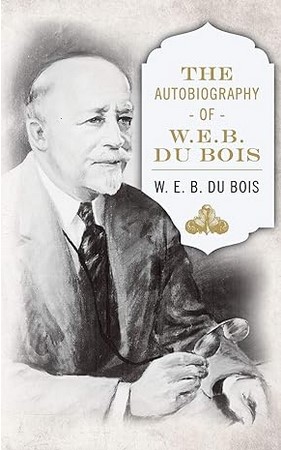
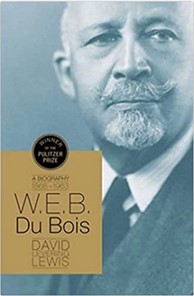
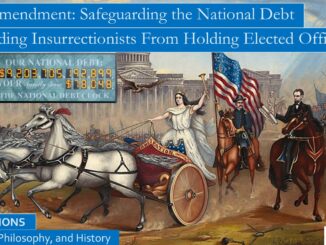

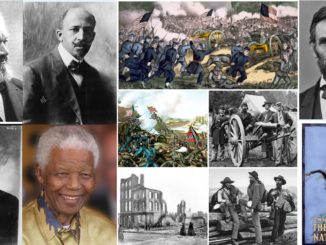
3 Trackbacks / Pingbacks